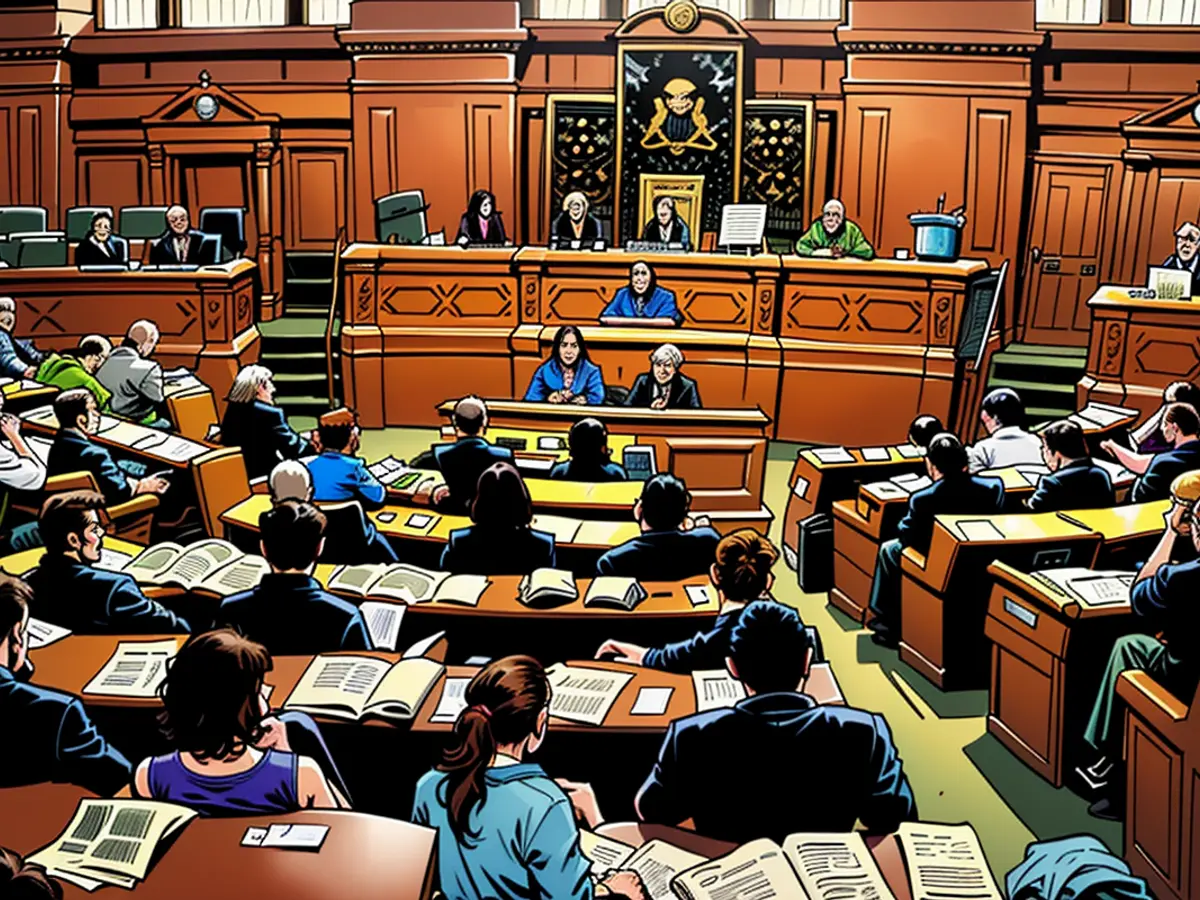Political Affairs - Reduced opportunity for non-allied parliamentarians to voice their opinions.
Non-aligned representatives in the Hamburgische Bürgerschaft will have less opportunity to speak during Aktuellen Stunde in the future, as per a joint proposal from the SPD, Greens, and CDU parties to alter the procedural rules.
In recent times, the number of deputies who do not belong to any of the five factions has increased to five. This has resulted in these deputies being granted disproportionately long speaking time in the initial stage of a debate, amounting to approximately 30% of the total speaking time allocated to an Aktuellen Stunde, while the factions, which represent a total of 118 deputies, only manage 70%. This uneven distribution of speaking time has led to a deviation from the original intended balance.
"Under the current regulation, the currently five factionless deputies can occupy up to 30% of the speaking time of an Aktuellen Stunde, while the factions, which together represent 118 deputies, can only secure 70%," pointed out Ole Thorben Buschhüter, the parliamentary leader of the SPD. Such disproportionate distribution causes the speaking time allocation to "stray from its intended course".
Greens parliamentary leader Michael Gwosdz echoed this sentiment, referring to it as a "skewing of the scales". "By capping the speaking time of factionless deputies to three minutes in the first round of Aktuellen Stunde, the initial balance will be restored. From the second round onwards, they will be granted the same amount of time as other deputies. This ensures that all participants can contribute value."
The AfD offering their dissenting view stated, "Democracy involves granting political minorities ample opportunity to voice their thoughts and be heard - even if such situations are frustrating and time-consuming," said By their parliamentary leader Krzysztof Walczak. "The proposed motion could potentially infringe upon the rights of factionless deputies, which is unacceptable from our perspective."
The motion will be presented for decision at the next Bürgerschaftssitzung, scheduled for June 26th.
Read also:
The proposed changes to the procedural rules in the Hamburgische Bürgerschaft could potentially impact the Speaking time of non-aligned deputies, such as those with Citizenship from parties like the CDU or SPD, as they might see their initial allocation reduced. This alteration, if approved, could bring the Speaking time distribution back to its intended balance, allowing all parliamentarians, including these individuals, an equal opportunity to contribute.
In the upcoming Bürgerschaftssitzung on June 26th, the SPD, Greens, and CDU will present their motion to reduce the Speaking time for non-aligned deputies in the Aktuellen Stunde, a move that has sparked controversy among parties like the AfD, who argue that it could infringe upon the rights of these citizens to voice their opinions.








